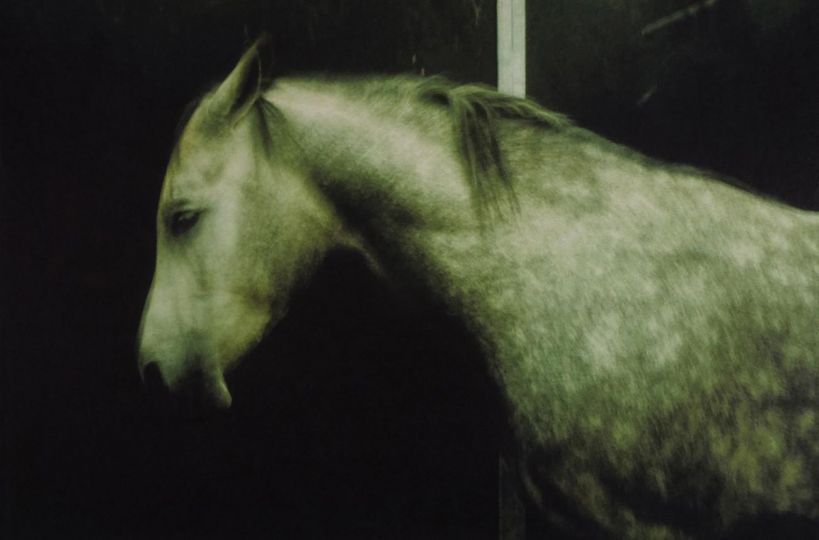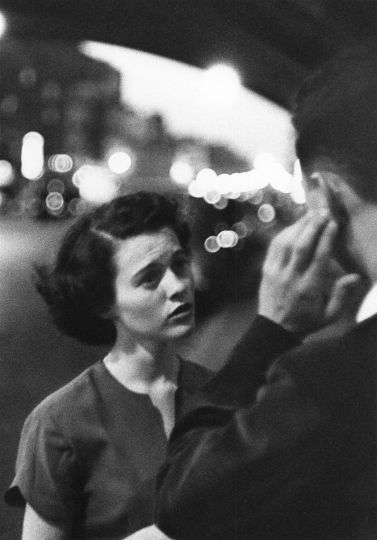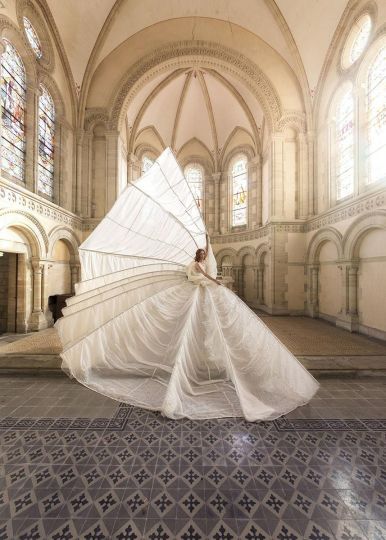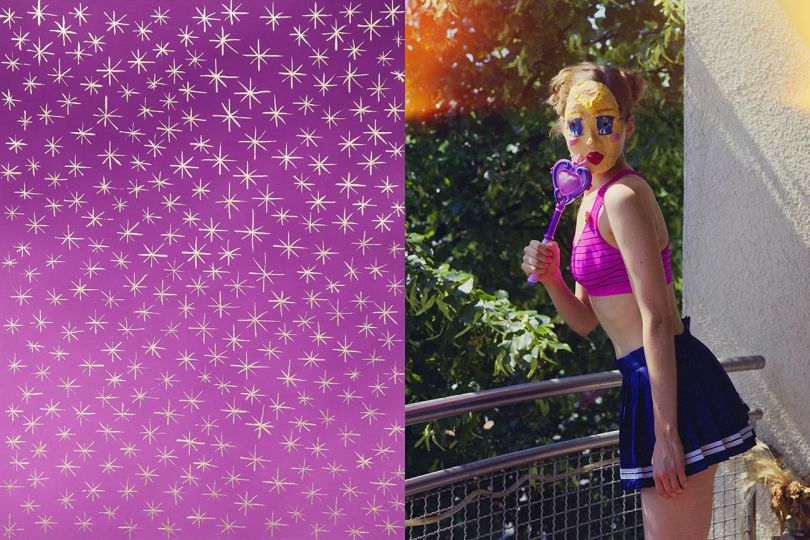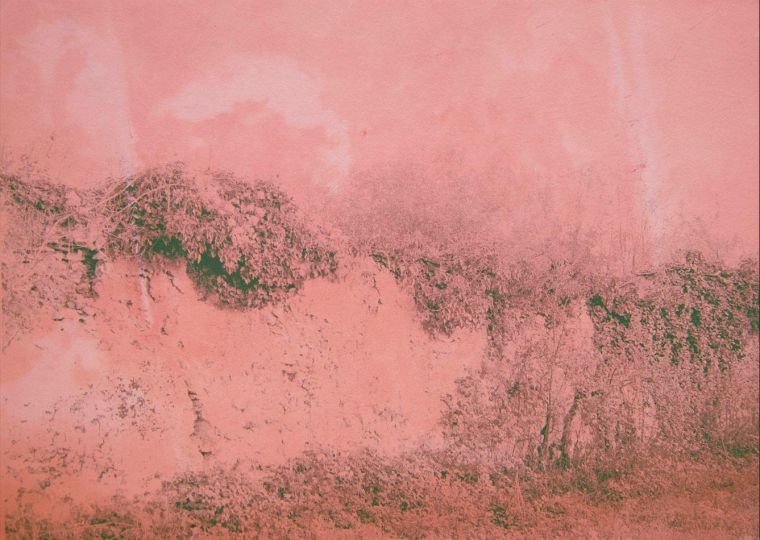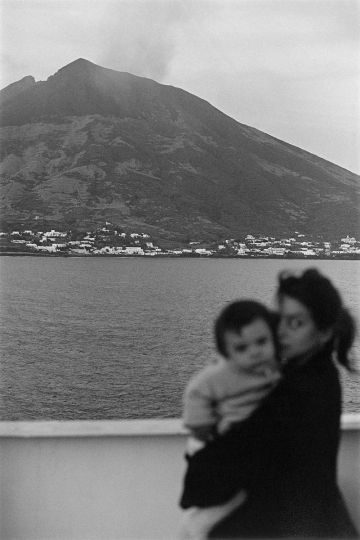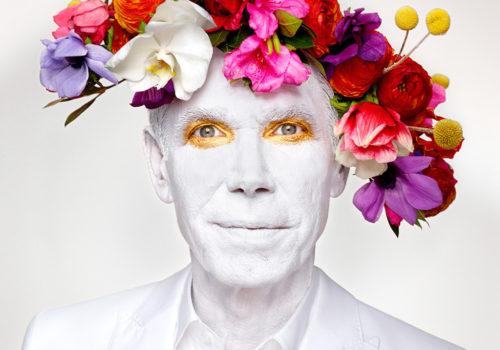On Wednesday, February 7, 2018, at the Gallimard bookstore in Paris, Bettina Rheims talked with the journalist Marie Drucker about their respective projects, both entitled Détenues. The first is a book published by Gallimard (Bettina Rheims), the other a documentary film (Marie Drucker). A frank and passionate exchange about the conditions of women’s detention, time behind bars, and the peculiarities of the prisoners.
Bettina Rheims’s book Détenues takes us across the threshold of four different detention centers in France. The photographer answered the essayist Robert Badinter’s “call to go to prison.” She spent an entire winter there, staying at nearby hotels. While in the nineteenth century prisons were constructed in city centers, nowadays they are located in the countryside, away from human gaze, outside society. They are difficult to access, both materially and administratively. Unusually, prison administration collaborated with the photographer, appreciated her work, and gave her carte blanche.
The photographer and the journalist found their first days disturbing. The prison could have been a neutral, sanitized world. On the contrary, it turned out to be a cacophony of deafening sounds: clanking metal, the hum of television sets, the drone of conversations resonating along the hallways, audible in Drucker’s footage. Personalized cells, decorated with odds and ends, convey the ambiguity of the place, hesitate between total depersonalization and resistance. What is also striking is the distrust and the questioning, suspicious gaze of the inmates. Anything that comes from the outside, apart from family and lawyers, is suspect. It is necessary to gain their confidence, to talk, to find an opening without pestering anyone.
“Women’s prisons don’t want to be seen by society,” insists Bettina Rheims. And that’s a fact. Four percent of inmates in France are women: they are completely ignored, and the representation and images of prisoners are practically exclusively male. “[The women] are rejected, they get lost, they cannot see themselves. In prison, there are no mirrors. Their femininity is gone,” explains the photographer. This is has to with one of the fundamental strategies of incarceration: the annihilation of identity. Any distinctions, any singular traits are stifled by the prison system.
The photographer helps restore the originality of every individual by paradoxically adopting and subverting this very system. Every detainee is photographed inside a cell, against a white background, seated on the same stool, “back against the wall, facing the world.” The same shooting conditions apply to everyone. The photographer is limited by the ridiculously close quarters, while the face-to-face encounter facilitates uniform composition.
And yet the models’ skin, their tattoos, their age, their worries, their habits, their beauty come into their own. Their slouched, proud, affected, lewd, doubting, exhausted posture. Their eyes looking sideways or head-on, revealing, it would seem, withdrawal, oblivion. A moment’s pause.
Prison is a dehumanising space. It’s an environment where one forgets the passing hours worn thin with medication. It’s a totality where one gets so used to the eight square meters that they begin to feel like home. It’s a rhythm where time, rather than stand still, slips by indifferently. This dehumanised space leaves its mark on human faces and flesh. This is precisely what Bettina Rheims, with great fidelity, simplicity, and restraint, brings to light in her portraits.
Arthur Dayras
Arthur Dayras is a writer specializing in photography. He lives and works in Paris.
Publication: Bettina Rheims, Détenues, Gallimard (Coll. Blanche), 2017
€39
Exhibition: Détenues
Chateaus de Vincennes and Cadillac, Paris
Until April 30, 2018
https://www.monuments-nationaux.fr/Actualites/Exposition-Detenues-de-Bettina-Rheims
Documentary film: Marie Drucker, Détenues, What’s Up Films & Zed, 2016





